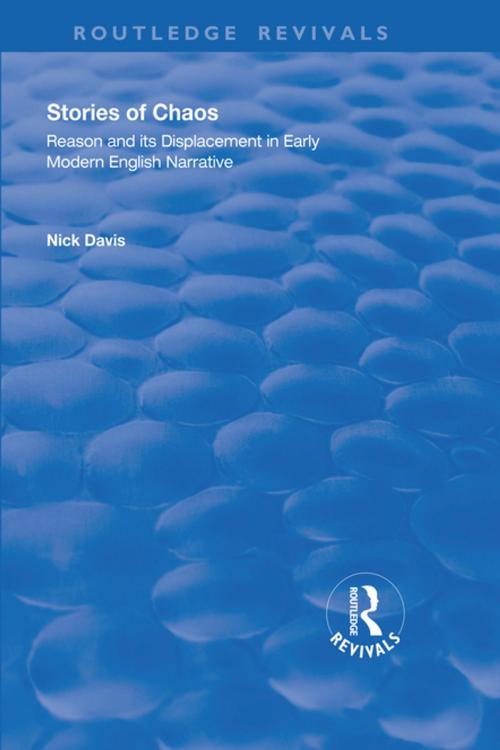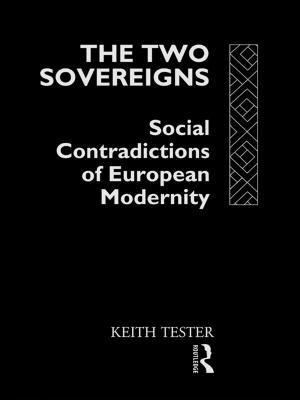Stories of Chaos
Reason and its Displacement in Early Modern English Narrative
Fiction & Literature, Literary Theory & Criticism| Author: | Nick Davis | ISBN: | 9780429791390 |
| Publisher: | Taylor and Francis | Publication: | May 23, 2019 |
| Imprint: | Routledge | Language: | English |
| Author: | Nick Davis |
| ISBN: | 9780429791390 |
| Publisher: | Taylor and Francis |
| Publication: | May 23, 2019 |
| Imprint: | Routledge |
| Language: | English |
First published in 1999, this volume re-examines narrative design in Sir Gawain and the Green Knight, The Faerie Queene, King Lear and Paradise Lost. Written in a period newly set on finding practical application for available systems of reasoning, these texts confront in their different ways reason’s absolute limitation in the face of a Real which it cannot adequately represent to itself or recruit to its own purposes. An influential model for the staging of such a confrontation was the mythic, cosmological narrative of Plato’s Timaeus. In their rewriting of Plato’s narrative the English texts deploy but also destabilize the ancient conceptual polarization of the ‘rational’ and the ‘irrational’ or ‘chaotic’, rethought in the terms offered by their period’s innovatory practices of reasoning. The study establishes the critical importance of telling a story of chaos by comparing the narrative method of its chosen texts with that adopted by Freud and Lacan as a means of reflection on the psychoanalytic encounter with an ultimately chaotic Real.
This book has unusual interdisciplinary scope, and offers historically grounded, theoretically informed new readings of four major early modern English literary texts.
First published in 1999, this volume re-examines narrative design in Sir Gawain and the Green Knight, The Faerie Queene, King Lear and Paradise Lost. Written in a period newly set on finding practical application for available systems of reasoning, these texts confront in their different ways reason’s absolute limitation in the face of a Real which it cannot adequately represent to itself or recruit to its own purposes. An influential model for the staging of such a confrontation was the mythic, cosmological narrative of Plato’s Timaeus. In their rewriting of Plato’s narrative the English texts deploy but also destabilize the ancient conceptual polarization of the ‘rational’ and the ‘irrational’ or ‘chaotic’, rethought in the terms offered by their period’s innovatory practices of reasoning. The study establishes the critical importance of telling a story of chaos by comparing the narrative method of its chosen texts with that adopted by Freud and Lacan as a means of reflection on the psychoanalytic encounter with an ultimately chaotic Real.
This book has unusual interdisciplinary scope, and offers historically grounded, theoretically informed new readings of four major early modern English literary texts.















